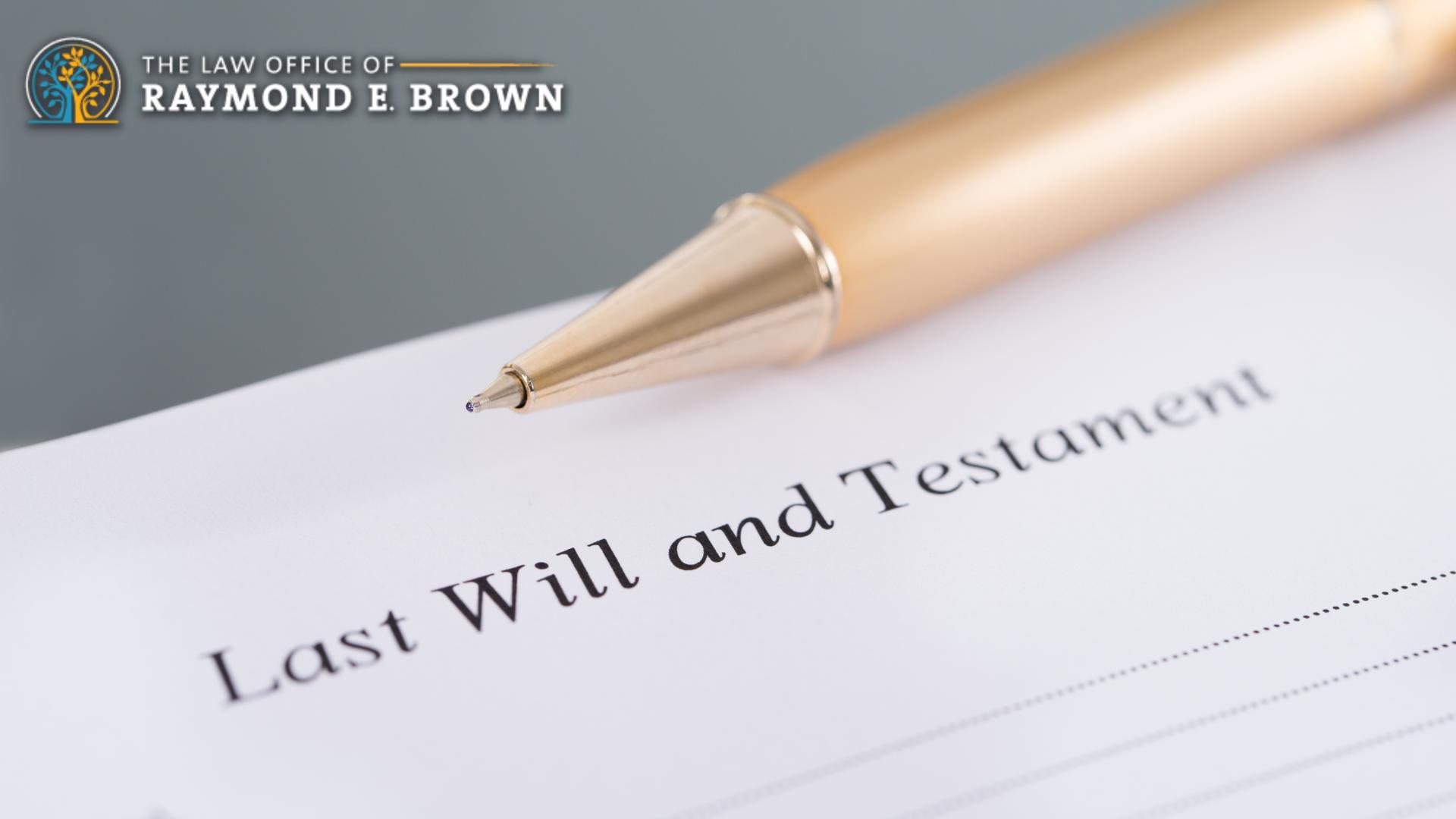When it comes to estate planning, many people assume they need to have a formal, typed will for their wishes to be legally binding. However, it is possible to create a handwritten will, also known as a holographic will, under certain circumstances.
The Maryland estate planning attorneys at The Law Office of Raymond E. Brown will explain what you need to know about handwritten wills in Maryland and how they need to be crafted to ensure legality.
If you have questions regarding your original will or need assistance creating one, contact the compassionate attorneys at The Law Office of Raymond E. Brown by calling (443) 554-9944 today.
What is a Holographic Will?
A holographic will is a handwritten document that is signed by the testator, which is the person that has created the will. Holographic wills are not created by an attorney and don’t require credible witnesses or a notary. This often leads to many wondering if the document is considered a valid will.
In fact, several states do not recognize holographic wills. The states that do allow holographic wills must meet certain requirements to consider them valid. In Maryland, holographic wills are only recognized if they meet the requirements according to the laws of the state. Holographic wills will become null and void after one year, or it has been determined that the testator does not possess testamentary capacity.
When crafting legal documents in preparation for one’s passing, it can be tempting to forgo the steps to create a last will and testament. However, holographic wills can create headaches and legal troubles for the surviving spouse, minor children, and anyone else affected by the deceased’s remaining estate, especially if that will does not appoint a personal representative.

Maryland Law Regarding Holographic Wills
If you decide to create a holographic will, it’s essential to include the necessary requirements that should be included in all Maryland wills to improve validity. One must appoint a personal representative and assign personal property so that there are no questions about the estate after the testator’s passing.
Holographic wills can be easily contested in the courts due to the lack of proof that the deceased person actually wrote it or if they possessed the necessary testamentary capacity when creating it. If the Maryland court system determines that the holographic will is not valid, the laws of intestacy will take effect when distributing the estate.
What About Oral Wills?
It’s important to note that Maryland does not recognize oral wills. A person’s last will and testament must be in writing and signed by the testator with two witnesses present.

Are Handwritten Wills Valid?
Maryland law allows for handwritten wills, but they must meet specific requirements to be valid. First, the will must be entirely in the testator’s handwriting or the person creating the will. Therefore, it cannot be typed or printed. Additionally, the testator must sign and date the will to be considered legally binding.
Handwritten wills can be a good option for individuals with simple estate planning needs who do not want to incur the expense of working with an attorney to make a formal will. However, it is essential to note that handwritten wills can be more easily contested than formal wills, as there may be questions about the document’s validity or the testator’s intentions.
What’s the Best Way To Create a Will?
It is generally recommended that individuals work with an experienced estate planning attorney to create a formal last will and testament. This can help ensure that the will is legally binding and that the individual’s wishes are fulfilled after they pass away. An attorney can also provide guidance on other important estate planning documents, such as Trusts and Powers of Attorney, that can help protect your assets and ensure that your wishes are respected if you become incapacitated.
When creating your last will and testament, it’s essential to work with an experienced attorney that specializes in Maryland wills. Writing your last will and testament is important to ensuring your family is taken care of upon your passing. The estate planning attorneys at The Law Office of Raymond E. Brown will work with you to make sure that your wishes are fulfilled both in life and after your passing.

For All Your Maryland Estate Planning Needs, Trust The Law Office of Raymond E. Brown
While handwritten wills are permissible under Maryland law, they may not always be the best option for individuals who want to ensure their estate is correctly managed after they pass away. Therefore, it is recommended that you consult with an experienced estate planning attorney that specializes in Maryland wills to determine the best course of action for your individual needs.
The Annapolis estate planning attorneys at The Law Office of Raymond E. Brown understand the importance of planning for your loved ones’ care following your passing. Whether you have a prior will that you wish to update or have questions regarding a new will, you can trust that our compassionate attorneys will ensure that all your needs and your family’s needs are met.
If you need help creating your last will and testament or have questions regarding estate planning, contact The Law Office of Raymond E. Brown by calling (443) 554-9944 or completing our online form today.

